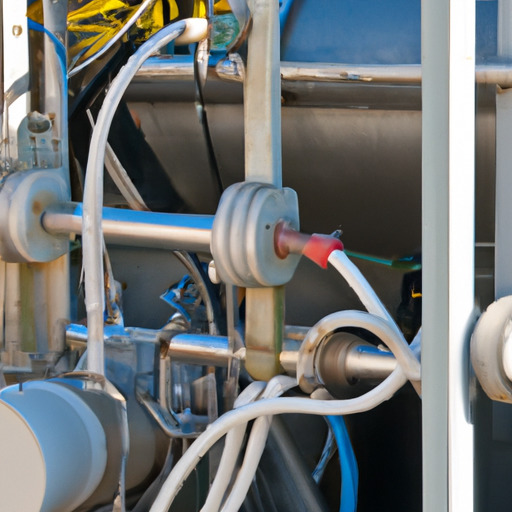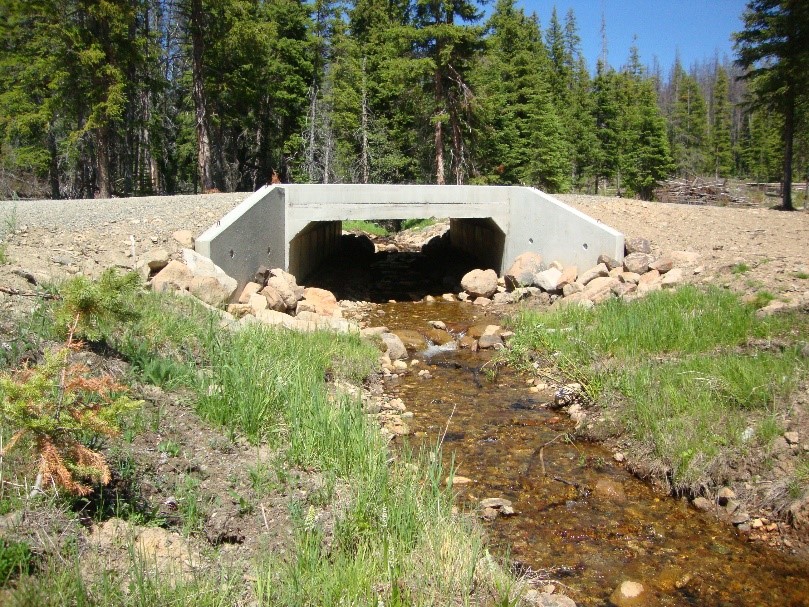In today’s rapidly changing climate, it is crucial to explore innovative solutions for climate change adaptation. One often overlooked solution lies in wastewater treatment. By effectively managing and treating wastewater, we not only ensure the health and safety of our communities, but also mitigate the impact of climate change. In this article, we will delve into the role of wastewater treatment in climate change adaptation, highlighting its potential to safeguard our environment and promote sustainable development.
The Importance of Wastewater Treatment for Climate Change Adaptation
Understanding the Link between Wastewater Treatment and Climate Change
Wastewater treatment plays a vital role in climate change adaptation by addressing the interconnection between climate change and the management of wastewater. Wastewater treatment involves the process of removing contaminants from sewage or other sources of wastewater before releasing it back into the environment. It is crucial to understand the link between wastewater treatment and climate change in order to recognize its significance in adapting to the changing climate.
Explaining the Concept of Wastewater Treatment
Wastewater treatment is a complex process that involves several stages to ensure the removal of harmful substances and pathogens from wastewater. The primary goal of this process is to protect human health and the environment by treating wastewater before it is discharged into rivers, lakes, or oceans. This treatment is essential as untreated wastewater can contribute to water pollution, which in turn can have detrimental effects on ecosystems and human well-being.
Highlighting the Impact of Climate Change on Wastewater Systems
Climate change has a significant impact on wastewater systems, posing numerous challenges to their effectiveness and functionality. Rising temperatures and shifts in precipitation patterns can result in increased wastewater generation and altered characteristics of wastewater, including higher concentrations of pollutants. Additionally, extreme weather events such as hurricanes, floods, and droughts can damage wastewater infrastructure, leading to service disruptions and potential pollution incidents.
Identifying the Need for Adaptation Measures
In light of the impact of climate change on wastewater systems, the need for adaptation measures becomes crucial. It is essential to develop strategies and implement practices that enhance the resilience of wastewater treatment systems to withstand the challenges posed by a changing climate. These measures include both preventive actions, such as improving infrastructure design and maintenance, and reactive responses to cope with the effects of climate change on wastewater systems.
The Role of Wastewater Treatment in Mitigating Climate Change Impacts
Reducing Greenhouse Gas Emissions through Proper Treatment Processes
Wastewater treatment plays a significant role in mitigating climate change by reducing greenhouse gas emissions. During the treatment process, organic matter in wastewater is broken down by microorganisms, producing biogas. This biogas, primarily consisting of methane, can be harnessed and used as a renewable energy source. By capturing and utilizing biogas, wastewater treatment plants can decrease their reliance on fossil fuels, reducing carbon emissions and contributing to the transition towards a low-carbon economy.
Minimizing Environmental Contamination and Health Risks
Proper wastewater treatment not only reduces greenhouse gas emissions but also minimizes environmental contamination and associated health risks. Untreated or inadequately treated wastewater can contain harmful substances such as heavy metals, pharmaceuticals, and pathogens. When discharged into the environment, these contaminants can contaminate water bodies and harm ecosystems, including aquatic life and plants. By implementing effective wastewater treatment processes, the release of these pollutants can be minimized, protecting both the environment and public health.
Conserving Water Resources through Wastewater Reuse and Recycling
Wastewater treatment offers opportunities for conserving water resources through recycling and reuse. Water scarcity is a pressing issue in many regions around the world, and treating wastewater to make it suitable for non-potable purposes can alleviate the strain on freshwater supplies. Treated wastewater, often referred to as recycled water or reclaimed water, can be used for various purposes such as irrigation, industrial processes, and groundwater recharge. By reusing treated wastewater, water consumption from freshwater sources can be reduced, promoting sustainable water management and resilience against the impacts of climate change.
The Potential of Wastewater Treatment in Climate Change Adaptation
Enhancing Resilience of Wastewater Treatment Systems to Climate Change
Wastewater treatment systems can enhance their resilience to climate change by implementing adaptation measures. This includes improving infrastructure design and maintenance to withstand extreme weather events, diversifying water sources to ensure a reliable supply during droughts, and implementing advanced management strategies to cope with changing wastewater characteristics. By enhancing the resilience of wastewater treatment systems, we can ensure the continuity of essential services, protect public health, and minimize the environmental impacts of wastewater discharge.
Utilizing Innovative Technologies for Climate Change Adaptation
Innovation and the utilization of new technologies play a crucial role in climate change adaptation within the wastewater treatment sector. Advanced treatment processes, such as membrane filtration, ultraviolet disinfection, and anaerobic digestion, offer more efficient and cost-effective methods for treating wastewater. Furthermore, the integration of smart technologies and real-time monitoring systems can optimize the operation of wastewater treatment facilities, enabling proactive responses to changing conditions. By embracing innovation, wastewater treatment systems can become more adaptable, energy-efficient, and sustainable in the face of climate change.
Integrating Wastewater Treatment with Sustainable Urban Planning
Integrating wastewater treatment with sustainable urban planning is essential for effective climate change adaptation. Urban areas are particularly vulnerable to the impacts of climate change, and wastewater treatment plays a critical role in ensuring the resilience of cities and their infrastructure. Sustainable urban planning should incorporate decentralized approaches to wastewater treatment, such as green infrastructure and decentralized treatment systems. By decentralizing wastewater treatment and integrating it into the fabric of urban development, cities can enhance their capacity to adapt and become more sustainable in the face of climate change.
Challenges Faced by Wastewater Treatment Systems in the Context of Climate Change
Increased Vulnerability to Extreme Weather Events
Wastewater treatment systems face increased vulnerability to extreme weather events, which are expected to become more frequent and intense due to climate change. Extreme events such as hurricanes, storms, and floods can cause damage to treatment plants, pipelines, and storage facilities, disrupting the operation of wastewater systems and leading to potential pollution incidents. Ensuring the resilience of wastewater treatment infrastructure to withstand these events is crucial for maintaining the functionality of the systems and minimizing the risk of environmental contamination.
Rising Sea Levels and Coastal Infrastructure Protection
Coastal cities and regions face the additional challenge of rising sea levels, exacerbating the impact of climate change on wastewater treatment systems. Wastewater treatment plants located in coastal areas are at risk of inundation and saltwater intrusion, threatening their operation and integrity. Coastal infrastructure protection measures, such as elevated treatment plants, flood barriers, and saltwater intrusion prevention strategies, need to be implemented to safeguard wastewater treatment facilities against the consequences of rising sea levels.
Dealing with Seasonal Variations in Wastewater Quantity and Quality
Climate change can bring about seasonal variations in wastewater quantity and quality, posing challenges to wastewater treatment systems. More intense rainfall events during certain seasons can result in higher wastewater volumes, potentially exceeding the capacity of treatment facilities. Additionally, fluctuations in wastewater characteristics, such as higher concentrations of pollutants during storm events, require adaptations in treatment processes to maintain the desired treatment efficiency. Strategies such as storage capacity expansion, process optimization, and flexible operational protocols can help wastewater treatment systems cope with the seasonal variations imposed by climate change.
Funding and Investment Needs for Climate Change Adaptation
One of the significant challenges faced by wastewater treatment systems in the context of climate change is securing sufficient funding and investments for adaptation measures. Upgrading existing infrastructure, implementing new technologies, and incorporating climate resilience into wastewater treatment planning require substantial financial resources. Governments, international organizations, and stakeholders need to prioritize investments in climate change adaptation and provide financial support to ensure the effective and timely implementation of resilient wastewater treatment systems. Public-private partnerships and innovative financing mechanisms can also play a crucial role in addressing the funding gap.
Conclusion
Recognizing the crucial role of wastewater treatment in climate change adaptation is essential for building resilient and sustainable communities. By understanding the link between wastewater treatment and climate change, we can highlight the importance of proper wastewater management in the face of a changing climate. The role of wastewater treatment in mitigating climate change impacts, its potential in climate change adaptation, and the challenges faced by wastewater treatment systems emphasize the need for comprehensive strategies and collaborative efforts. Policy support, investment in innovative technologies, and integration of wastewater treatment into sustainable urban planning are vital for ensuring the effectiveness and resilience of wastewater treatment systems against the challenges posed by climate change. By embracing these measures and recognizing the importance of wastewater treatment, we can contribute to a more sustainable future and address the impacts of climate change on our environment and communities.



